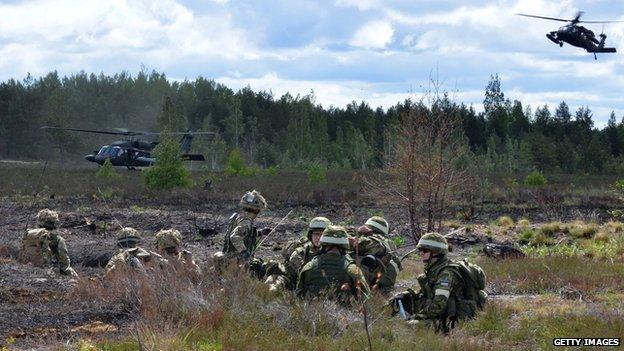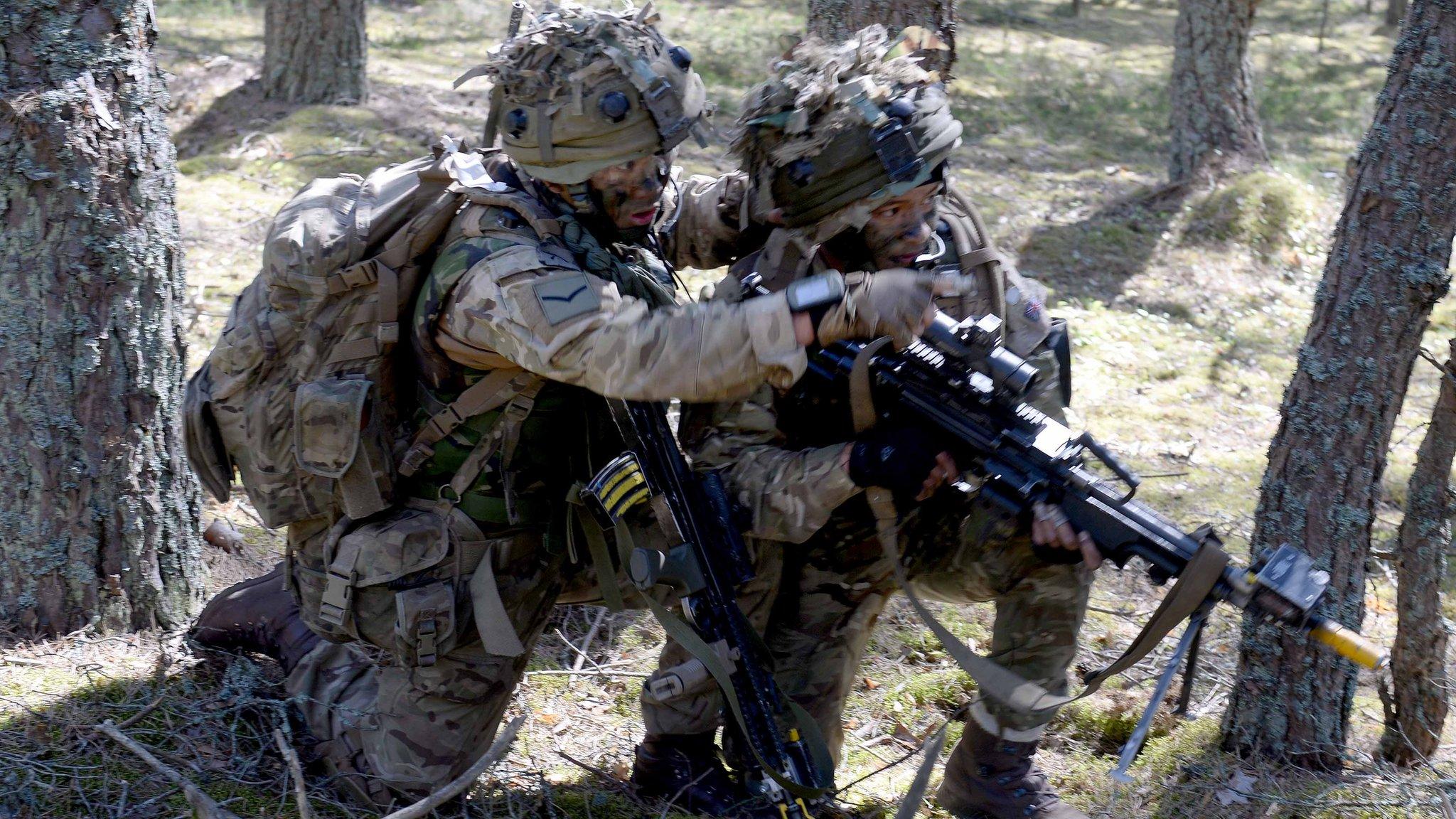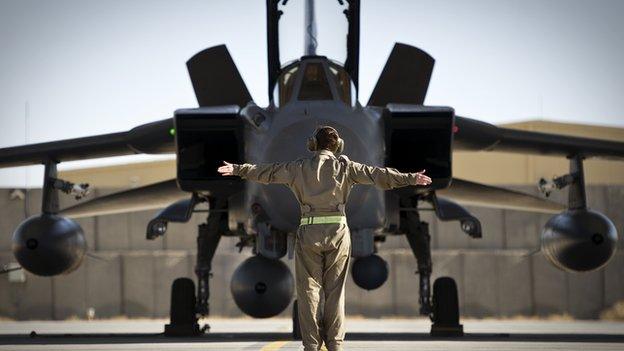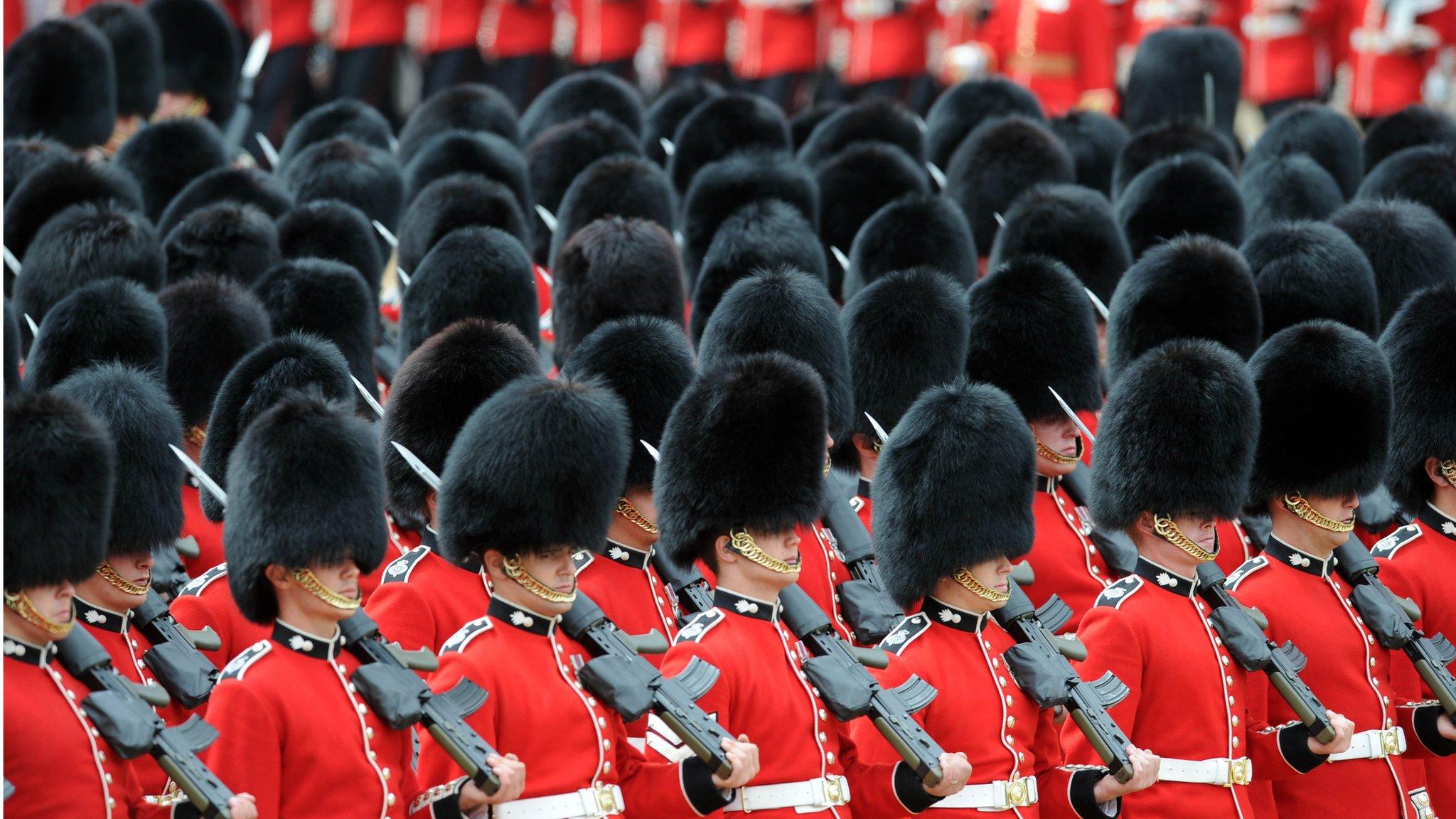Defence spending to include peacekeeping
- Published

British soldiers took part in a Nato military exercise in Latvia this month
Some peacekeeping missions are to be counted as defence spending for the first time, the BBC has learned.
Ministers are under pressure to commit to a Nato target of spending at least 2% of GDP on defence, and new figures are expected to show the UK currently spending more than 2.1%.
But this total will include some of a £1bn cross-departmental Conflict Pool, a government source told BBC political correspondent Carole Walker.
Nato has approved the move, she added.
The Ministry of Defence provides about £450m of the costs of the Conflict Pool, which is managed with the Foreign Office and the Department for International Development.
'Comfortably over'
According to the government, the pool "will draw on the most effective combination of defence, diplomacy, development assistance, and national security assets" to "promote peace and stability and to tackle threats to UK interests arising from instability overseas".
Some Conservative MPs, and former military generals, have called on the government to commit to continuing to meet the target for Nato members to spend over 2% of their economic output on defence.
Speaking on Sunday, Defence Secretary Michael Fallon told the BBC's Marr Show the latest figures would show the UK spending "comfortably over" this amount.
When pressed on whether the UK would continue to meet that target, he said: "We can't set the budget on this programme, we set the budget in September, then you'll have your answer.
"But we already have three very strong commitments in our manifesto to go on increasing spend on equipment, to go on replacing the four ballistic submarines, and not to cut the Army further.
"There is your commitment."
Former defence minister Sir Gerald Howarth said it was not fair to include contributions to the Conflict Pool in defence expenditure.
"We are facing a very much more dangerous world than we did in 2010 and it looks like what the government is doing is raiding a whole series of accounts and saying 'we didn't include those in the defence budget in the past but in order to make up the 2% and satisfy people like me, we are going to raid those accounts'," he told the BBC News Channel.
While it may be "perfectly legitimate" under Nato rules, Sir Gerald said it would not "allay concerns" both among sections of the British military and foreign allies about the UK's ability to fulfil its commitments on the world stage.
UKIP said the changes to the defence budget calculation amounted to "little more than creative accounting".
The party's defence spokesman Mike Hookem said: "Our view is that the defence budget should be spent on troops, equipment and essential care, such as decent housing and healthcare for personnel and their families."
- Published21 June 2015

- Published12 March 2015

- Published16 April 2015
